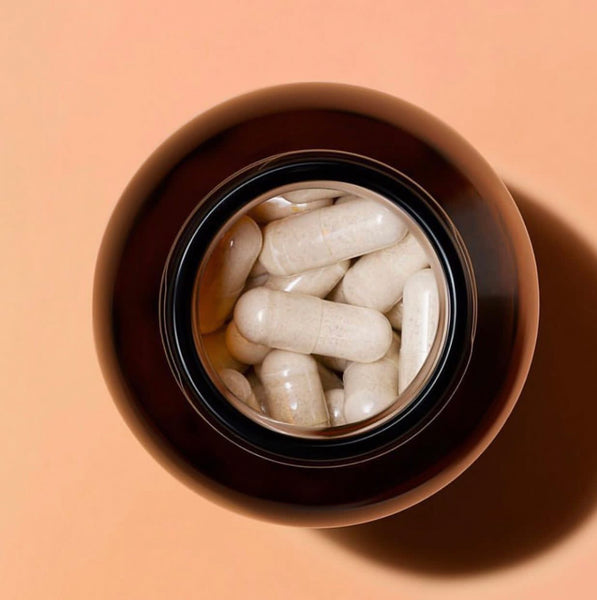October 2018
Click Here to Subscribe: http://Bit.ly/ThomasVid
Website: http://ThomasDeLauer.com
The information in this video is for educational and informational purposes only. Thomas DeLauer is not a doctor and his information should not be misconstrued as medical advice.
Cholesterol and Heart Disease: Should You Worry About High LDL Levels? - Thomas DeLauer…
LDL cholesterol is not the bad culprit that is leading to your heart disease. Don't listen to all the mainstream stuff out there that tells you if your cholesterol levels are high that you are inevitably going to end up with heart disease. Here's the thing: it literally comes down to something known as oxidized LDL. It's not LDL. It's the process in which inflammation envelops LDL. If you listen to this video and you understand what I say, I promise you that you can start finding a way to still eat the higher fat foods that you need without worrying about having cholesterol give you a heart attack. Pay attention to how this actually works within the body.
LDL is needed first of all. It's not the bad cholesterol. It's only bad when it's oxidized. LDL cholesterol delivers what we need to the cell. LDL is the cholesterol that is heading to the cell to be utilized. HDL cholesterol, or good cholesterol, scavenges excess cholesterol and brings it back to the liver, so it's gotten a good name because it goes ahead and it picks up bad cholesterol that's laying around. The reality is they're both good. We need both of them.
LDL becomes bad when it becomes oxidized. If you've ever heard of oxidative stress, well, that's just the thing. Have you ever heard of an antioxidant? We talk about them all the time. They're marketed all the time. Antioxidants get rid of oxidation or oxidative stress or free radicals within the body. It's only when a free radical combines with LDL that we have a problem. Here's how it works. When you have LDL, that cholesterol is going to do a specific job. A cell has a receptor where that LDL goes into the receptor and does its job within the cell. Now, what happens is that LDL can react with a free radical. Let's say you have a toxin that's in your body because you've been eating a lot of sugar. Those free radicals float through your bloodstream, and they hit the LDL. It causes a chemical reaction that causes that LDL to swell up. It causes it to swell up because it triggers white blood cells and macrophages to attract to it.
Now, you've got this LDL that's no longer a nice, clean LDL. It's now a foamy, spongy, soft LDL that's been exceptionally sticky. What happens? They aggregate. All of those LDL cells that are now sticky, that aggregate and they continue to pile on until they are just a smorgasbord of LDL cells that are not functioning properly. They are sticky, they are foamy, and they are oxidized. Then they stick to your arterial wall, but guess what? It's not the sticking to the arterial wall that's really even the bad thing.
What happens is they actually enter through the endothelial layer of your artery, which means it actually enters into the cell. Enter into the actual wall of the artery. Then, when that happens, it triggers more inflammation because now the endothelial cells are like, "Whoa. What's this invader doing?" You have more inflammation that goes to the cells, so now not only do you have a plaque of sticky, foamy, oxidized LDL, but you have an arterial wall that is swollen with an inflammatory response. Your arterial wall went from this to this, but it gets worse.
Now that you have this oxidized LDL, it actually inhibits the production of nitric oxide. That inhibition of nitric oxide means that you no longer have nitric oxide to allow those endothelial cells to relax and allow the vasodilation or the relaxation of the blood vessel.
References:
1) Did You Know... That Inflammation Might be the Real Cause of Heart Attacks? (n.d.). Retrieved from http://cardiachealth.ca/templates/con...
2) What Is the real cause of heart disease? | Cholesterol or inflammation. (2017, December 29). Retrieved from https://www.docsopinion.com/2012/06/0...
3) Jennifer Moll, PharmD. (2009, January 28). What Is Oxidized LDL Cholesterol and Why Is It Important? Retrieved from https://www.verywell.com/what-is-oxid...
4) Oxidation of LDL-Cholesterol | Internet Stroke Center. (2018, March 22). Retrieved from http://www.strokecenter.org/professio...
5) What Is the Difference Between LDL and Oxidized LDL? (2014, February 10). Retrieved from http://healthyeating.sfgate.com/diffe...
6) Iron Linked to LDL Oxidation and Artery Disease - Heal Naturally. (2017, June 11). Retrieved from https://www.realnatural.org/iron-ldl-...










